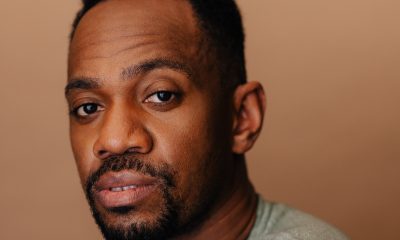Local
Drag star Vicki Voxx dies at 53
Vincent Hill worked as makeup artist for Arena Stage
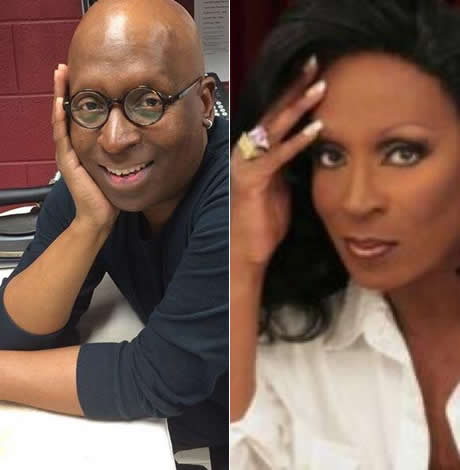
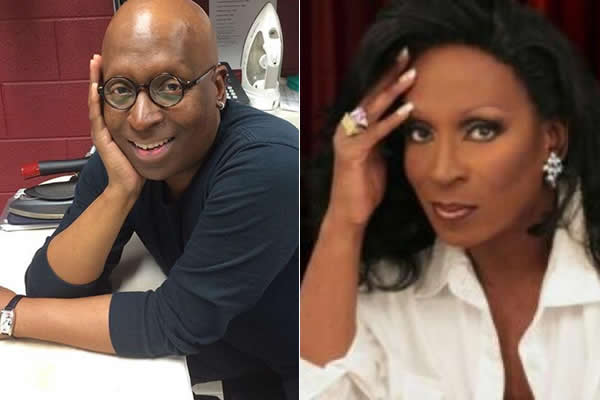
Vincent Hill, who performed under the stage name Vicki Voxx, died May 1 of cancer.
Vincent Hill, a highly regarded wig and makeup artist at D.C.’s Arena Stage Theater and a longtime local drag entertainer who used the stage name Vicki Voxx, died May 1 at George Washington University Hospital of complications associated with cancer. He was 53.
Friends and associates describe Hill as a loving and caring person who seamlessly carried out his dual role as a popular and sought after drag performer at D.C. gay bars since the 1980s and his work since 2010 in helping to enhance the appearance of cast members at Arena Stage.
“If you have seen almost any Arena Stage show in recent years, then you have seen his outstanding work as our Wig, Hair and Makeup Supervisor,” a statement posted on the Arena Stage website says.
“Everyone who knew him, had the privilege to work with him, or were blessed enough to call him a friend will miss him terribly,” the statement says. “Vincent was an important part of the Arena Stage family whose kindness, caring attention, and talent as an artist and performer were at the core of what makes Arena what it is.”
Jazz musician Aaron Myers, who met Hill about seven years ago shortly after moving to D.C., said Hill’s warm and friendly demeanor and sincere interest in those he knew made it easy for the two to become close friends.
Myers said Hill was born and raised in D.C. and attended the city’s H.D. Woodson High School.
He said he came to learn that Hill’s persona as Vicki Voxx had long ago become a legend in D.C.’s drag community. In addition to establishing close ties to fellow drag performers, including Ella Fitzgerald, Kristina Kelly, and the late Mame Dennis, Hill was among the drag performers who supported community causes.
“At the time of the ‘80s and early ‘90s it was the drag community that was helping to raise money for those who were dying of HIV/AIDS and who needed assistance,” Myers said. “And they would do these shows all over raising money for the cause when the federal government had not yet designed a system to offer assistance.”
Vicki Voxx played an important part in those fundraising efforts, Myers said.
Kelly said Hill became part of the D.C. area drag community more than 30 years ago.
“We became friends quite some time ago,” said Kelly. “You know, the drag family sometimes is the only family some people have. We latch onto each other because this world is sometimes very difficult,” she said.
“He was a very good person. He did hair and wigs for a lot of the people in our community,” Kelly said. “He helped everyone.”
Myers said he was moved by Hill’s positive attitude when he visited him in the hospital about a week before his passing.
“He was asking me how I was doing,” said Myers. “He told me that he was not afraid to die. He was fearless until the end.”
But Myers said Hill told him something a while ago while the two were watching a drag show that he’ll never forget. Myers noted Hill pointed out that the drag performers, who were considerably younger than him, were not moving within the spotlight that was directed onto the stage.
“He said they’re dancing but they’re not dancing in their light,” Myers recounted. “He said if you can follow where the light is you can really, really touch this entire room. He said they’re really all over the place but if they can get into that light they’ll be OK.”
Added Myers, “And I think that’s what he’s done now. He’s found a new light and he’s sticking with it. I’m seeing all of the outpouring of love on his Facebook page. I can only see how he’s affected and left a legacy of love that really spans the United States and the world.”
Friends said they expect information about a celebration of life or memorial service to be announced shortly.
District of Columbia
Imperial Court of Washington drag group has ‘dissolved’
Board president cites declining support since pandemic
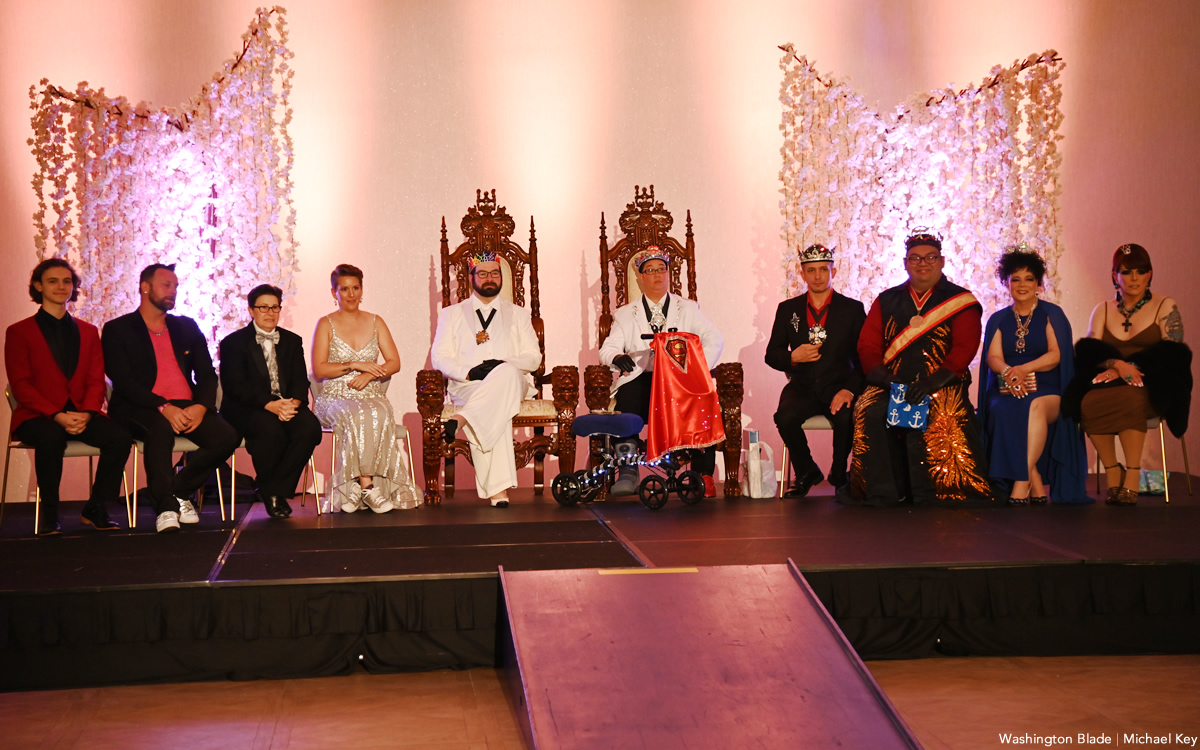
The Imperial Court of Washington, a D.C.-based organization of drag performers that has raised at least $250,000 or more for local LGBTQ and non-LGBTQ charitable groups since its founding in 2010, announced on Jan. 5 that it has ended its operations by dissolving its corporate status.
In a Jan. 5 statement posted on Facebook, Robert Amos, president of the group’s board of directors, said the board voted that day to formally dissolve the organization in accordance with its bylaws.
“This decision was made after careful consideration and was based on several factors, including ongoing challenges in adhering to the bylaws, maintaining compliance with 501(c)(3) requirements, continued lack of member interest and attendance, and a lack of community involvement and support as well,” Amos said in his statement.
He told the Washington Blade in a Jan. 6 telephone interview that the group was no longer in compliance with its bylaws, which require at least six board members, when the number of board members declined to just four. He noted that the lack of compliance with its bylaws also violated the requirements of its IRS status as a nonprofit, tax-exempt 501(c) (3) organization.
According to Amos, the inability to recruit additional board members came at a time when the organization was continuing to encounter a sharp drop in support from the community since the start of the COVID pandemic around 2020 and 2021.
Amos and longtime Imperial Court of Washington member and organizer Richard Legg, who uses the drag name Destiny B. Childs, said in the years since its founding, the group’s drag show fundraising events have often been attended by 150 or more people. They said the events have been held in LGBTQ bars, including Freddie’s Beach Bar in Arlington, as well as in other venues such as theaters and ballrooms.
Among the organizations receiving financial support from Imperial Court of Washington have been SMYAL, PFLAG, Whitman-Walker Health’s Walk to End HIV, Capital Pride Alliance, the DC LGBT Community Center, and the LGBTQ Fallen Heroes Fund. Other groups receiving support included Pets with Disabilities, the Epilepsy Foundation of Washington, and Grandma’s House.
The Imperial Court of Washington’s website, which was still online as of Jan. 6, says the D.C. group has been a proud member of the International Court System, which was founded in San Francisco in 1965 as a drag performance organization that evolved into a charitable fundraising operation with dozens of affiliated “Imperial Court” groups like the one in D.C.
Amos, who uses the drag name Veronica Blake, said he has heard that Imperial Court groups in other cities including Richmond and New York City, have experienced similar drops in support and attendance in the past year or two. He said the D.C. group’s events in the latter part of 2025 attracted 12 or fewer people, a development that has prevented it from sustaining its operations financially.
He said the membership, which helped support it financially through membership dues, has declined in recent years from close to 100 to its current membership of 21.
“There’s a lot of good we have done for the groups we supported, for the charities, and the gay community here,” Amos said. “It is just sad that we’ve had to do this, mainly because of the lack of interest and everything going on in the world and the national scene.”
Virginia
LGBTQ groups to join Spanberger inaugural parade
Virginia Pride among more than 25 orgs to march in Jan.17 event
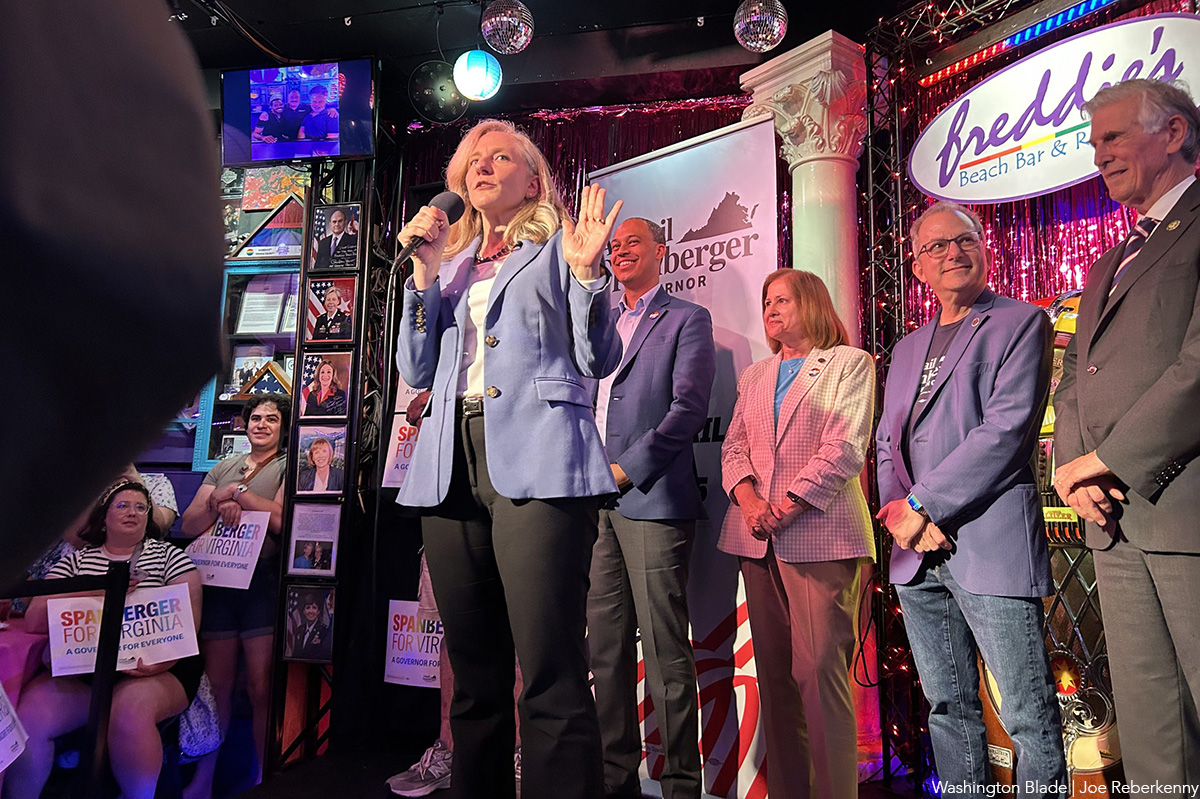
Virginia Gov.-Elect Abigail Spanberger’s inaugural committee announced on Jan. 2 that at least two LGBTQ organizations will be among more than 25 state-based organizations, including marching bands, that will participate in her inaugural parade on Jan. 17.
A statement released by the inaugural committee says the parade will take place immediately after Spanberger is sworn in as Virginia’s 75th governor and delivers her inaugural address in Richmond.
The statement lists the LGBTQ groups Virginia Pride and Diversity Richmond as two groups participating in the parade, although the two groups merged in 2021, with Virginia Pride becoming a project of Diversity Richmond. Among other things, Virginia Pride organizes Richmond’s annual LGBTQ Pride events.
“A display of the impressive talent and beauty of every corner of Virginia, our inaugural parade will be a celebration of all that makes our Commonwealth strong,” Spanberger said in the Jan. 2 statement. “I’m excited for attendees in the stands on Capitol Square and families watching together at home to see this incredible showing of Virginia pride,” she said.
James Millner, who serves as director of Virginia Pride, told the Washington Blade about 75 people are expected to join the Virginia Pride-Diversity Richmond contingent in the parade. He said among them will be members of other Virginia LGBTQ organizations.
“We’re going to invite our staff, our board, our volunteers, and our community partners to join us,” Millner said.
“We are thrilled and honored to have been invited to participate in Abigail Spanberger’s inauguration festivities,” he added. “I think this represents a marked change from the previous administration and demonstrates what she campaigned on – which is she sees the diversity of the Commonwealth as a strength that needs to be celebrated,” he said. “And we are very happy that she has invited us to represent the diversity of the commonwealth.”
Millner appeared to reflect on the sentiment of the large majority of Virginia’s LGBTQ community in its support for Democrat Spanberger over Republican Lt. Gov. Winsome Earle-Sears in the November 2025 Virginia election and the end of incumbent GOP Gov. Glenn Youngkin’s term in office on Jan. 17.
“After what we’ve been through with the Younkin administration, especially in its treatment of LGBTQ folks, especially transgender and nonconforming folks, I think we are all breathing easy and excited about what opportunities will exist in working with Abigail Spanberger,” he told the Blade.
District of Columbia
Two pioneering gay journalists to speak at Thursday event
Blade’s Chibbaro, Falls Church News-Press’s Benton talk long careers
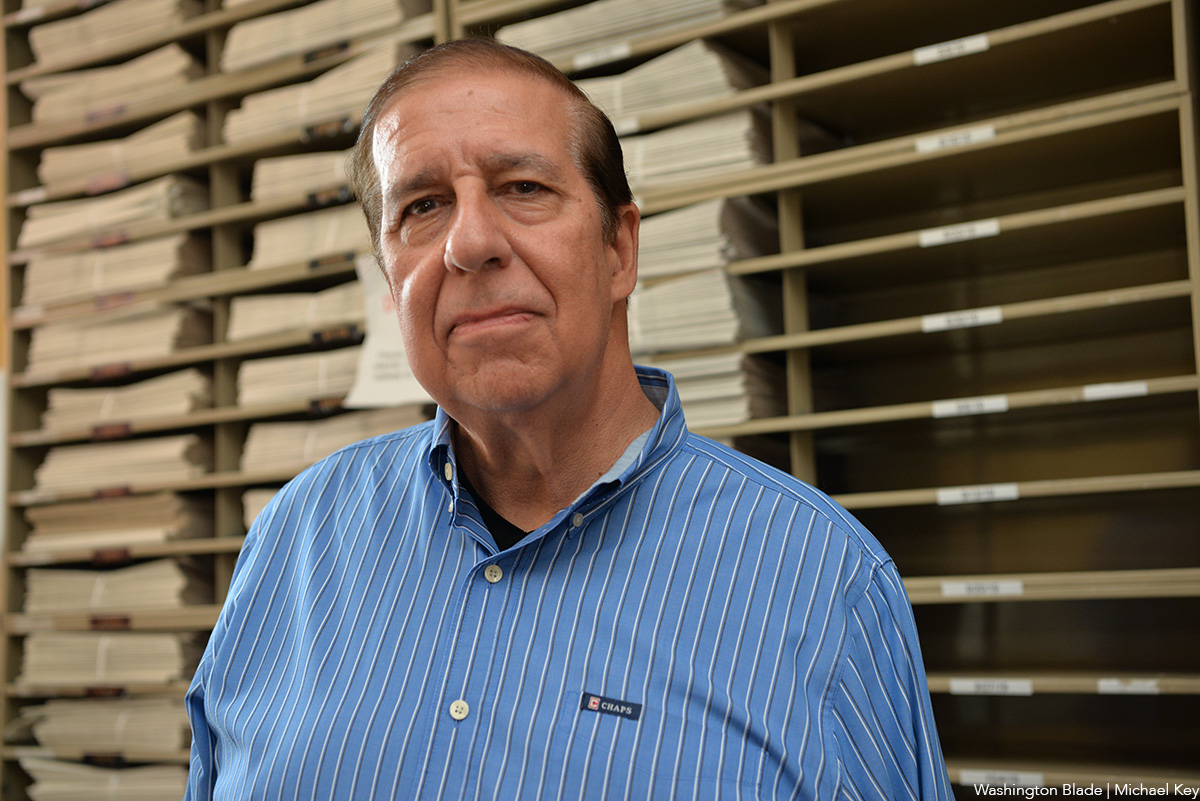
Two local gay journalists will speak on a panel this week about their long, pioneering careers.
A celebration of the Falls Church News-Press’s Nicholas Benton and the Washington Blade’s Lou Chibbaro Jr., two trailblazing LGBTQ journalists who have spent decades reporting on the front lines of social, cultural, legal, and political change in America, will be held this Thursday, Jan. 8, at the Women’s National Democratic Club of Washington. D.C., 1526 New Hampshire Avenue, N.W., at 6 p.m., according to a statement from organizers.
The program will explore their journeys, the evolution of LGBTQ journalism, and the ongoing fight for equality and justice. Benton and Chibbaro will also examine the various factors causing many news outlets to cease print publication and their energetic efforts to continue publishing their work both in print and online.
EVENT DETAILS:
- Remarks and Q&A, in-person and via Zoom.
- 6 p.m. complimentary hors d’oeuvres and cash bar; 6:30–7:30 p.m. program followed by book signing.
- Zoom only: $10. In-person: members: $20, nonmembers: $30 plus tax.
Benton’s latest book, “Please Don’t Eat Your Children, Cult Century, and Other Essays,” will be available for purchase at the event.
Benton is a longtime local journalist and LGBTQ rights activist whose work has had a lasting impact on both community journalism and social justice. Author of the first-ever editorial in the pioneering Gay Sunshine newspaper in 1970, he is best known as the founder, owner, and editor of the Falls Church News-Press, an independent weekly newspaper he launched in 1991 and is the paper of record for the City of Falls Church, Virginia.
Chibbaro is the senior news reporter for the Washington Blade and a pioneering journalist in LGBTQ news coverage. He has reported on the LGBTQ rights movement and community continuously since 1976, first as a freelance writer and later as a staff reporter, joining the Blade in 1984.

